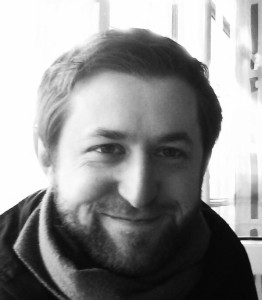 In my first week in Calais, the appeal to prevent French authorities beginning evictions from the “Jungle” was denied. Very few had hoped for a reprieve, instead discussion was focused on the “whens” and “hows.” Tension was growing.
In my first week in Calais, the appeal to prevent French authorities beginning evictions from the “Jungle” was denied. Very few had hoped for a reprieve, instead discussion was focused on the “whens” and “hows.” Tension was growing.
French authorities have said that there are 1000 people in the southern part of the camp, however, census estimates from aid groups put the number between 3000 to 4000. Official alternative accommodation provided for up to 1000 people includes adapted shipping containers within the Jungle and relocation to a scattering of other sites across France.
Jungle residents try daily to get across to the UK, the destination for which they have crossed continents, paid smugglers and traffickers, and endured so many hardships to reach. Refusal to accept French resettlement means accepting eviction, which has previously meant bulldozers, tear gas, and riot police. Can you picture riot police and water cannons chasing the homeless down London streets? Gas grenades thrown into shelters and hostels? To use such measures again, to forcibly evict residents in the middle of a cold Calais winter, is inhuman.
I’m here, in the middle of this atmosphere of hope, doubt, fear, and frustration. It’s intense and almost overwhelming. So what can I do? Could anything I do have an impact?
On one level, yes, I think so. Because amid this morass of political, reductive indifference, among the outcasts within the European community, life goes on from day to day, minute to minute. People living here in the Jungle are no different from anyone else in their physical responses to their living environment.
I see patients with coughs and colds, cuts and bruises, chest infections, chilblains, and skin problems. “Normal” conditions—the bread and butter of primary care. Cold weather and smoke from fires irritate skin and airways, bruises and grazes result from falls out of trains or lorries or blows from gendarmes. Infections spread easily from person to person in overcrowded conditions with limited running water and communal portaloos.
Part of being a doctor, a nurse, or any other health professional is about focusing on the patient in front of you—blocking out the world around your consultation so that you can tune into your patient’s needs, their condition, their pathology. On one level this is a necessary coping mechanism. It helps you perform your job as well as you can. Arguably, this benefits your patient, and if you’re benefitting your patient, then that’s enough. You’re doing your job. Right?
Recently a man brought one of his children to see me as they had a viral infection that had left them dehydrated and unable to eat. His wife, who was back at their shelter, had run out of medication weeks ago for a chronic condition that needed treatment. They had stayed together over the thousands of miles from Afghanistan to come to the UK. Next week they were facing eviction. Now, this extraordinary man was reaching his limit. How can a volunteer treating pathology be an adequate response to this family’s needs?
Europe has a problem, not just in the Calais Jungle, but throughout the continent—a situation of overwhelming humanitarian need perpetuated by political choice—and neither riot police nor volunteerism are an answer. Not in any sustainable, humane sense. What is?
Peter Scolding is a UK junior doctor, recently returned from working in Calais. He is currently taking an F3 year, spending time working in the UK and abroad. He is also a member of the Steering Group for the Junior Humanitarian Network (jhnetwork.org).
Competing interests: I have read and understood BMJ policy on declaration of interests and declare the following interests: None.
